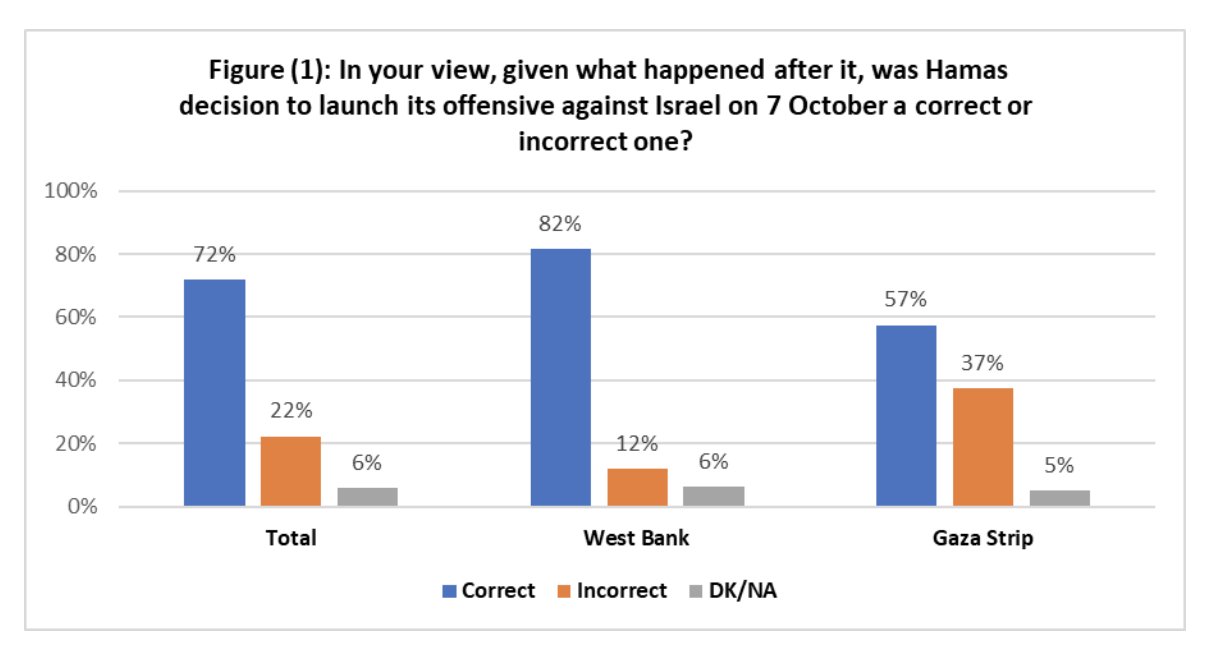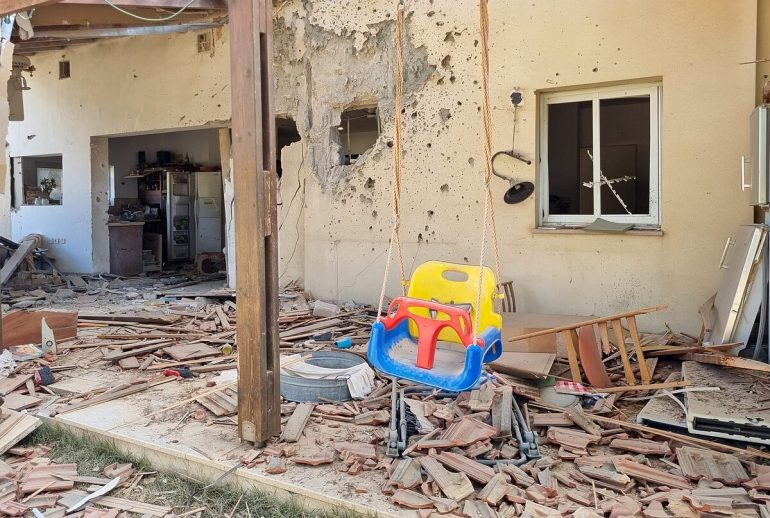In an op-ed titled “Israel, Palestine and the mirage of a two-state solution”, Financial Times foreign affairs commentator Gideon Rachman suggests that there’s much in the way of political and moral overlap between Israel and Hamas. He doesn’t evoke this equivalence explicitly, but the tone is set in the opening paragraph:
Israel and Hamas are bitter enemies. But they also agree on some things. Neither the government of Israel nor Hamas has any real interest in a “two-state solution” to the Israel-Palestine conflict. And neither side wants to stop fighting in Gaza — even as the territory is devastated around them.
The only way Rachman can sell the ‘equal blame’ for the failure of two states narrative is by ignoring the multiple times that Palestinian leaders rejected Israeli peace offers that would have created a sovereign Palestinian state, which he does in these paragraphs:
But, these days, even the supporters of a two-state solution often sound embarrassed to utter the phrase. Understandably. This idea has been pushed repeatedly for more than 30 years — but consistently failed to take root.
The conditions for a two-state deal are, in most respects, far worse than they were in 1991 — when the Madrid peace conference put the idea firmly on the international agenda. Back then, there were fewer than 100,000 Israeli settlers on the occupied West Bank. Today there are about 500,000.
Contrary to Rachman’s claim, neither the Madrid Process nor the Oslo Accords of 1993 made any mention of the creation of a Palestinian state. The idea of creating an independent Palestinians state was never codified in a bi-lateral agreement, and only came later as the result of Israeli political decisions.
Rachman continues:
In the 1990s, there were flourishing peace movements in both Israel and among the Palestinians. But that was before the expansion of Israeli settlements in the occupied West Bank, two Palestinian intifadas and terrorism inside Israel, the rise of Hamas in Gaza and repeated Israeli attacks on the territory.
Though the FT journalist does mention the impact of the violent intifada on peace process, he doesn’t mention that the 2nd intifada was started by Palestinian leaders after Ehud Barak offered Yasser Arafat a deal in the summer of 2000 that would have created a sovereign Palestinian state. Arafat rejected that deal, and then ignited mass violence, mostly directed at Israeli civilians, that would claim over 1,000 lives, and traumatise a generation. Undeterred, Barak offered Arafat a more generous proposal in January of 2001, which Arafat similarly rejected.
This timetable is important, because it contradicts the lazy assumption echoed in countless British outlets that Palestinians engage in violence over frustration with the the ‘stalled peace process’. While that’s obviously not true when it comes to Hamas and PIJ in Gaza, it’s an equally unsupportable conclusion when analysing West Bank terrorism.
Rachman continues, with this astonishing leap:
The bleak truth is that some of the worst suspicions both sides have about each other are true. Hamas has said repeatedly they would like to destroy Israel and massacre more Israelis. There are far-right extremists in key positions in the Israeli government, who openly dream of driving the Palestinians out of the occupied West Bank and Gaza.
Hamas’s own charter, which includes explicit and extreme antisemitism, such as citing the notorious antisemitic forgery the Protocols of the Elders of Zion as ‘proof’ of Jewish treachery, calls for Israel’s destruction and incites the mass murder of Jews qua Jews. This annihilationist antisemitism was fully on display in their barbaric slaughter of Jewish civilians on Oct. 7. Hamas’s pathological malevolence towards Jews and the Jewish state is not merely a ‘suspicion’, but a fact.
Israel, on the other hand, unilaterally withdrew from Gaza in 2005 in hopes of facilitating peace, and then, under Israeli prime minister Ehud Olmert, offered the Palestinians a state in 2008 that would have included all of Gaza, almost all of the West Bank and a capital in east Jerusalem. Once again, Palestinian leaders rejected that peace offer.
It’s also edifying that, just yesterday, a poll was published by the Palestinian Centre for Policy and Survey Research showing that an astonishing 72% of Palestinians still believe that Hamas was “correct” to launch its October 7 massacre, with 82% in the West Bank and 57% in Gaza backing it.
 So, even taking into account the horrible toll on Palestinians in Gaza as the result of Israel’s military response to Oct. 7, the worst antisemitic atrocity since the Holocaust, large majorities still back Hamas’s decision to launch their horrific attack.
So, even taking into account the horrible toll on Palestinians in Gaza as the result of Israel’s military response to Oct. 7, the worst antisemitic atrocity since the Holocaust, large majorities still back Hamas’s decision to launch their horrific attack.
There are, to be sure, a couple of extremists in the current Israeli government who may dream of driving Palestinians out of the territories. But, it’s hard to fathom how anyone with even a minimal understanding of Israeli politics can believe that – even after Oct. 7 – such delusional musings have any chance whatsoever of becoming policy.
In fact, even after the horrors of Oct. 7, a December poll by the Israeli Democracy Institute shows that, among Jewish Israelis, 75% on the Left, 45% in the Center and 21% on the Right still support making progress toward a two-state solution. By contrast, the Palestinian poll cited above showed 69% of the respondents say they support “a return to confrontations and armed intifada”.
The suggestion that’s at least arguably reached in a close reading of Rachman’s text is that there is something approaching a moral equivalence between Israel and Hamas. While such a profound moral error would be disturbing before Oc.t 7th, to impute such a parity after the group’s ISIS-style barbarism – murders, rapes, torture and mutilation of innocent Jewish men, women and children – was revealed to the world would represent a pathological cognitive failure.
Hamas and Israel are, as Rachman says, “bitter enemies”. However, this is clearly because the former is a fanatical antisemitic extremist group dedicated to the Nazi proposition that ‘the Jews are our misfortune’, and therefore the destruction of the Jewish state is a moral obligation, while the latter doesn’t wish to be annihilated.
Editor’s note: We contacted Mr. Rachman, asking him if he wanted to comment on the question of whether his column suggests a moral equivalence between Israel and Hamas. He replied that, “I think the article speaks for itself”.






So the FT is joining the Antisemites Club of ignorant media slagging off Israel.
No surprise there, then.